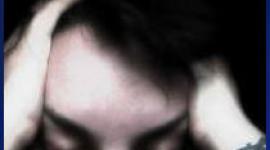Editorial: My Criticism of the JAMA Article
T he impression I am left with after reviewing this article is "why the fuss?" I realize it's a big deal for the ECT industry to get an article published in JAMA, but I'm not blown away by anything reported here, except by the fact that the high relapse rate is well-acknowledged. That's an area that has been ignored in contemporary ECT research for a long time in favor of studies giving it almost unconditional praise.
he impression I am left with after reviewing this article is "why the fuss?" I realize it's a big deal for the ECT industry to get an article published in JAMA, but I'm not blown away by anything reported here, except by the fact that the high relapse rate is well-acknowledged. That's an area that has been ignored in contemporary ECT research for a long time in favor of studies giving it almost unconditional praise.
The use of lithium as an augmentation agent with antidepressants has been known for about a decade, and studies have shown it to be fairly successful. I realize that the scope of this study was to examine methods to lower the unacceptably high relapse rate in ECT, but at the very least, there should have been an additional group that had no ECT and took the lithium/nortriptyline combination. I strongly suspect that over a six-month period, a similar rate of remission from depression would have resulted. Since the researchers didn't bother, however, it's only a supposition.
How does the fact that the ECT used was double the legal limit of electricity factor into the success rate? This is something that has troubled me for quite some time, in that this amount of electricity isn't what is used in practice. I do wonder how this study would have turned out if the researchers had stayed within the electrical limits. (There are numerous other studies that compare results using varying amounts of electricity, and it's generally acknowledged that the more electricity, the higher response rate.)
Unfortunately, these issues are not addressed at all in this study.
I picked up on some things that were entirely ignored by Dr. Sackeim and his colleagues. He cites a relapse rate of greater than 50 percent, and he says that researchers assume a relapse rate of 50 percent with placebo. Yet their own relapse rate in the placebo group, even using double the maximal charge output, is 84 percent? Why is this? Second, of the 290 patients who received this high dose ECT, 114 - almost 40 percent - didn't respond, according to Figure 1.
So you've got 40 percent in the study not even responding to the high dose ECT, then of those who responded, you've got relapse rates of 84, 60 and 39 percent.
This isn't very encouraging, is it?
Look at the actual numbers and draw your own conclusions. Of 290 people who completed ECT, six months later only 28 were considered not to have relapsed!
This kind of number is completely unacceptable, yet it is packaged as something new and innovative.
next: EEG Monitoring in ECT: A Guide to Treatment Efficacy
~ all Shocked! ECT articles
~ depression library articles
~ all articles on depression
APA Reference
Staff, H.
(2007, February 19). Editorial: My Criticism of the JAMA Article, HealthyPlace. Retrieved
on 2025, April 16 from https://www.healthyplace.com/depression/articles/editorial-my-criticism-of-the-jama-article



